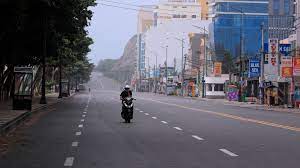Vietnam, the top Robusta exporter in
lockdown affecting global supply
September 4 - 2021 Coffee Geography Magazine
The government of Vietnam put major
cities in the country under lockdown to control the spread of Covid 19 which
creates concerns over global supplies of coffee.
The delta variant of the virus is shown
in fast surge in many areas of the country mainly the exporting port city, Ho
Chi Minh.
Vietnam as a main supplier of robusta
coffee beans to the European market, its product is preferred over the Brazlian
for instant coffee and some espresso blends.
Due to Brazilian coffee shortfall,
robusta prices have risen by 50% so far this year.
The lockdown of the city of Ho Chi Minh means Vietnam's exporters
are struggling to transport coffee beans to ports for shipment around the
world. The Vietnam Coffee-Cocoa Association
called on the country's government to ease the restrictions to help
avoid further delays to shipments and related costs.

The issues faced by Vietnamese producers are just the latest
problem to hit the coffee industry. Brazil, the world's biggest producer of the
premium arabica coffee beans, has seen its crops impacted by drought and
frosts.
Coffee production has been a major source of income for Vietnam
since the early 20th century. First introduced by the French in 1857, the Vietnamese
coffee industry developed through the plantation system, becoming a major
economic force in the country.
The Vietnamese coffee industry now employs 2.6
million people with production capacity second to only Brazil with its
61.7 million bags. Coffee has become Vietnam’s second most important crop
by volume after rice and is the most important by value.
The production in Vietnam accounting for more
than 90% of Vietnam’s total output has an average annual turnover of around
US$3 billion each year, equivalent to over 10% of Vietnam’s agricultural
exports. However, predicted challenges from growing areas on a global scale,
negative impacts of climate change and other increasing risks and
externalities, Vietnam is working hard towards greater coffee sustainability,
adapting production models and further developing best production practices at
all segments in the coffee value chain nationally and regionally to increase
resilience against the climate change and provide economic certainty to
smallholder producers.
